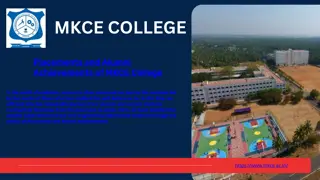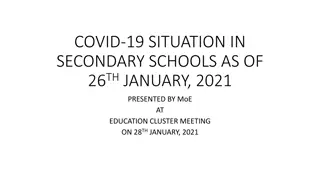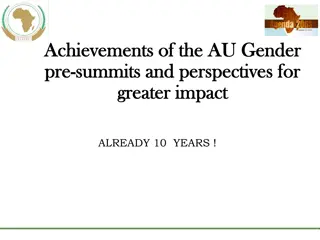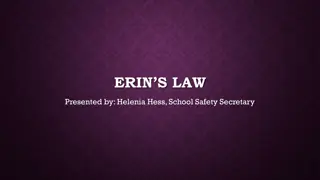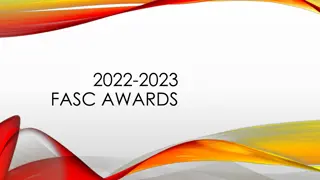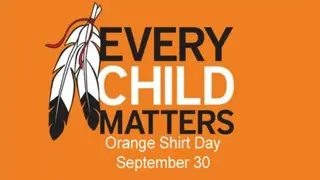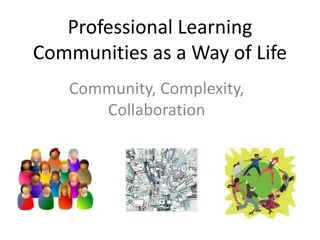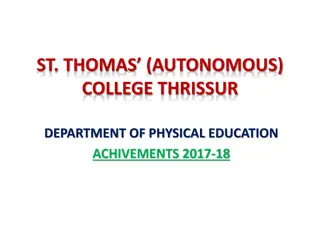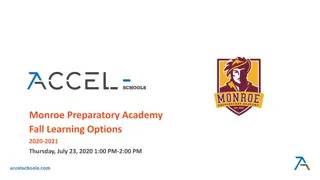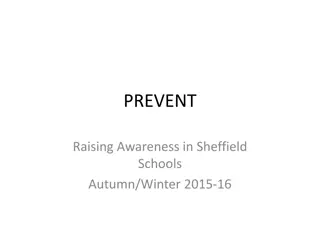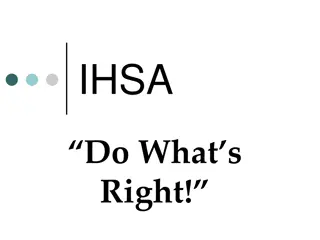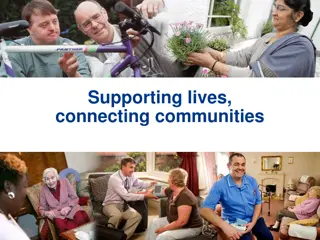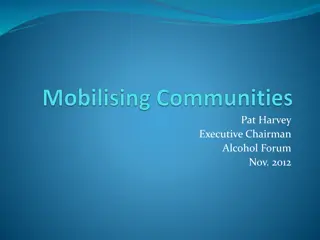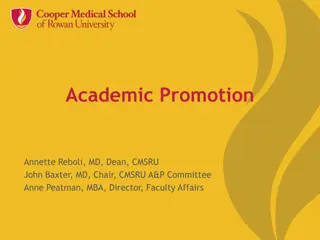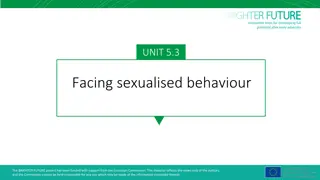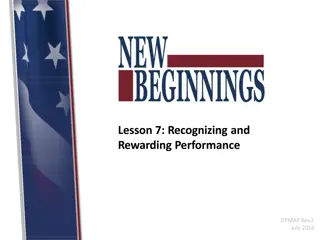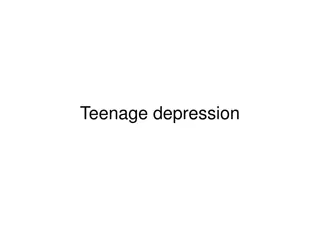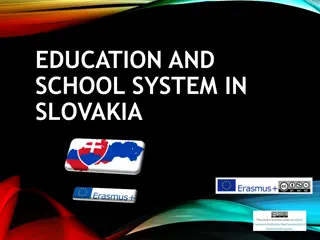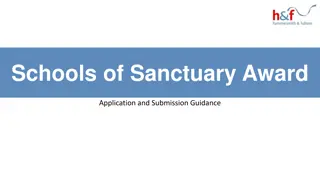Recognizing and Supporting Personal Achievements in Schools and Communities
Investigate how schools and community learning providers recognize and record personal achievements beyond the formal curriculum. Explore ways to enhance support and practice sharing. Findings reveal varied methods of acknowledgment and the importance of involving children and young people in reflecting on their achievements. Collaboration and youth awards play significant roles in promoting personal growth. Partnerships are key to providing diverse opportunities for recognizing accomplishments.
Download Presentation

Please find below an Image/Link to download the presentation.
The content on the website is provided AS IS for your information and personal use only. It may not be sold, licensed, or shared on other websites without obtaining consent from the author.If you encounter any issues during the download, it is possible that the publisher has removed the file from their server.
You are allowed to download the files provided on this website for personal or commercial use, subject to the condition that they are used lawfully. All files are the property of their respective owners.
The content on the website is provided AS IS for your information and personal use only. It may not be sold, licensed, or shared on other websites without obtaining consent from the author.
E N D
Presentation Transcript
Achievement When was the last time you achieved something? How did it make you feel?
Achievement Project Outcomes Investigate how children and young people s personal achievements, beyond the formal school curriculum, are currently recognised and recorded across schools and community learning and development (CLD) providers. Identify ways to share and support practice across schools and CLD providers. Project approach focused on 5 Key Questions.
Achievement Project Report Location The report marks a piece of research conducted by Education Scotland with the support of key stakeholders. It can be found on the Education Scotland website within the Practitioner Resource area and in the Knowledge and Research sub section.
1. How do schools and their CLD partners currently recognise children and young people s personal achievements (out with the formal curriculum )? Almost all schools and CLD practitioners felt that achievements out with school should contribute to what educational success looks like for children and young people. The types of achievement recognised by schools were mostly activities offered through school, including sports, drama, art, music and environment groups and pupil councils. Recognition of achievement appeared to be more established in schools where there are designated staff with responsibilities for promoting and developing achievement. Schools with direct involvement with CLD providers have a stronger recognition of achievement that occurs out with the school building. Schools are accepting that the journey in youthwork is part of attainment. You sometimes feel like we re being asked by the schools to go in and patch over the cracks, and they don t engage as we d like in conversations about learning goals and attainment.
2. What support do children and young people have, in school and in their communities, to reflect on and record their own personal achievements? The findings indicate that all participants recognised the importance of children and young people having ownership of their own achievements and the skills developed in their own personal learning journey. Some use local methods to record this in the absence of a nationally recognised approach to record achievements. Youth awards provide a recognised route for acknowledging achievement that is utilised by both schools and CLD providers. The Youth Work Outcome and Skills Framework by YouthLinkScotland has been used successfully in some youth work situations to allow skills mapping and reflection. Partnerships are crucial to provide achievement opportunities.
3. What data do schools, local authority CLD teams and their partners; and national youth awards providers currently gather at a local level? To what extent are individual children and young people s achievements tracked? Data sources referenced by participants that record children and young people s achievements out with the formal curriculum were Insight, school and CLD provider data, local authority performance management systems, third sector and national youth award completion figures. The differences and gaps between data sources demonstrated that the achievements of children and young people are not fully realised across the system. All participants agreed that disconnected systems create challenges for both recording and sharing data between schools and CLD providers. We re not really working together to record progress and achievements.
3. Continued A review of Insight Data Schools are more likely to recognise and value children and young people s achievements through youth work when they result in awards or Insight tariff points: It s been a journey for schools to recognise non-accredited attainment There s too much focus on stats. Insight data is only capturing a small percentage of youth awards being achieved by children and young people. Nearly all schools recognised that Insight does not support the capture of a board range of achievement opportunities or youth awards. Beyond Insight: Several schools gather data on participation in achievement opportunities and use this data to target learners who live in areas of deprivation.
4. What effective practice and professional learning can be shared and adopted across the region? Achievement opportunities are most successfully embedded in schools and CLD when there is a lead practitioner responsible for its implementation. Most schools lacked knowledge and confidence in providing youth awards. Some schools are keen to partner with CLD providers to embed and create opportunities, and work together to develop a means of evidencing impact of participation. Potentially using the Youth Work Skills and Outcomes Framework. More consistent ways of gathering and tracking data could be shared across schools and CLD providers to ensure children and young people's achievements are captured and recognised throughout their learning journey.
5. How will our regional pilot inform regional and national messages? The partners involved identified key national policy and practice developments and reforms. They committed to using the findings from this project to inform their contributions to those developments. It s our Future: Independent Review of Qualifications and Assessment Fit for the Future: developing a post-school learning system to fuel economic transformation Scottish Attainment Challenge: framework for recovery and accelerating progress Scottish Government s review of Insight Ongoing work with Education Scotland s Curriculum Innovation team to co-design new approaches to help learners gather evidence on achievements in school and in their communities using e-portfolios
Recommendations 1. Schools should seek to designate an educator, such as a DHT, PT, or teacher with additional duties, with responsibility for leading on developing and promoting achievement opportunities and increasing staff awareness of youth awards 2. Schools should also have a member of staff with responsibility for linking with CLD providers, youth work and youth award partners 3. Schools and CLD providers should develop local collaborative partnerships to support the development of achievement opportunities and youth awards. This should involve staff upskilling, shadowing and practice sharing opportunities at a local level. Partnership agreements should be co- designed and regularly evaluated 4. Schools and CLD partners, including youth work providers and youth award providers, should work together to build a common language to recognise children and young people s personal achievements in school and in their communities 5. Schools should use tracking tools to monitor who participates in achievement opportunities to better target which children and young people are not involved, especially those who would benefit the most
Recommendations 6. Schools should consult with children and young people to identify types of personal achievement opportunities that pupils would like to see offered, for example by conducting an annual census 7. CLD providers and schools should work on developing approaches to allow children and young people to reflect on, record and recognise their achievements consistently. This should include creating time and space to allow children and young people to routinely articulate, share and celebrate their achievements within and out with school 8. This pilot has demonstrated that the Youth Work Outcome and Skills Framework is a valuable tool to support shared planning and evaluation between youth work partners and schools. It also allows for accurate and meaningful skills mapping for children and young people. Professional learning and support in FVWL to increase awareness and use of the Framework should be a priority 9. Around half of schools are already using a range of innovative approaches to recognise and celebrate some of children and young people s achievements. There is scope for schools and their partners to share learning on this 10.The Awards Network should provide a regional feedback opportunity regularly to RICs surround the data they gather and share. Awards Network partners should capture postcode data to ensure accuracy of specific local and regional information
Our Actions In Forth Valley and West Lothian we will: Share findings and practice via regional webinar and support Using the pilot findings to inform the priorities in the FV&WL RIC Cross-sectoral professional learning: upskilling practitioners in personal achievement-based opportunities Professional learning and support to utilise the Youth Work Outcome and Skills framework. Nationally we will: Share findings with Scottish Government policy teams Inform direction of national work around measuring attainment; Profiling; and the 'value' placed on achievements Feed findings into the review of Insight and other steps towards education reform
Its Our Future: Report of the Independent Review of Qualifications and Assessment To ensure that the importance of this area of work is recognised, is well co- ordinated and has status, a promoted post should be established for those leading this work in schools and colleges. While information on learners out-of school achievement would be valuable if dependable, it should not be collected by teachers as this would provide added pressure to an already heavy workload.
Attainment and Achievement learning from youth work and school partnerships Marielle Bruce Youth Work & Schools Manager YouthLink Scotland The national agency for youth work
YouthLink Scotland Scottish Attainment Challenge national programme Our intended outcomes: As part of the education system, young people have access to effective support and learning through youth work both in school and in their communities, which is improving outcomes and accelerating progress towards tackling the poverty-related attainment gap Sustainable, effective collaboration between youth work and schools. The education system recognises and values young people s achievements and development of skills, including opportunities for learning in the community and/or in collaboration with youth work.
Youth Work and education Alongside schools, youth work improves the wellbeing, readiness to learn and educational outcomes of children and young people https://www.gov.scot/publications/pupil-equity-funding-national-operational-guidance-2023/ Youth work offers young people opportunities for personal learning and achievement, within school and in the wider community. Personal learning helps young people to develop knowledge, attitudes and skills for learning, life and work. This can be an important pathway to support engagement and raise attainment within the context of the SAC.
Recognising Achievement: Views of young people in the National Discussion Over 700 young people taking part in youth work said: Youth work is part of their education It helps them engage with learning The relationship with a youth worker is key and the non-formal, youth work approach Youth work helps young people develop CfE capacities And life relevant skills 83% of young people said their skills, qualities, experiences and achievements gained through youth work were very important or important to their future 88% of young people said their skills and achievements through youth work should be recorded and acknowledged alongside formal qualifications
Recognising and Recording Achievement in Forth Valley and West Lothian: Reflections on Practice from Youth Workers and Young People Participating in Youth Work Youth workers believe they help young people to notice and value a wide range of personal achievements. Both youth workers and young people say that some of the most important steps that young people take in youth work especially early in their youth work journey are acknowledged and celebrated in a youth work setting. Youth workers value the focus and structure offered by youth awards and SQA accredited qualifications to support learning and recognition of achievement. However, other approaches and tools are needed too: We only use accredited learning where it s appropriate gaining accreditation is never the purpose it s primarily about the skills.
How do youth workers support young people to recognise their learning and achievements? Youth workers build trust that enables honest, open conversations about progress Youth workers are trained to gather careful observations of young people s progress Youth workers are skilled at structuring and facilitating reflective learning opportunities for young people in a range of creative ways Youth workers encourage and enable young people to build reflective learning habits (the structure of youth awards also helps with this) Youth workers celebrate young people s individual and collective successes Frameworks such as National Youth Work Outcomes and Skills Framework and Youth Awards
National Youth Work Outcomes Young people build their health and wellbeing Young people develop and manage relationships effectively Young people create and apply their learning and describe their skills and achievements Young people participate safely and effectively in groups and teams Young people consider risk, make reasoned decisions and take control Young people grow as active citizens, expressing their voice and enabling change Young people broaden their perspectives through new experiences and thinking
Evaluation Principles in Youth Work Young people at the centre Strengths-based. Collaborative Done with not done to Focused on learning
Place-based approach In Alva, Clackmannanshire, the learning community we re piloting a skills-based approach to tracking achievement across youth work and school settings, structured around the National Youth Work Outcomes and Skills Framework.
What young people in Alva are saying It would be better for me to have a conversation about this easier than writing. If young people supported young people you could have more one-to-one conversations about this which would be better you learn a lot more when it feels personal. Being able to look back to when you were in S1 and track your skills from there would give you confidence. If all of my progress from football, from Columba and other things was in one place, I d see it clearer and it might give me more goals.
Regional approach With the West Partnership regional improvement collaborative, we re working with 5 youth work and school partnerships to pilot a simple new dashboard that will collate evidence of impact, structured around key outcomes and skills from the National Youth Work Outcomes and Skills Framework.
Youth Work and Schools Professional Learning Resources New Resources 1. Evaluation Principles in Youth Work 2. Step-by-Step Guide 3. Templates
Making connections Kate Somervail Duke of Edinburgh Award Tila McDonald Awards Network
Discussion Opportunities, Challenges and Connections?
Please share your details on a contact form! Contact us: Jamie.Dungavell@educationscotland.gov.scot Julie.beckett@educationscotland.gov.scot


